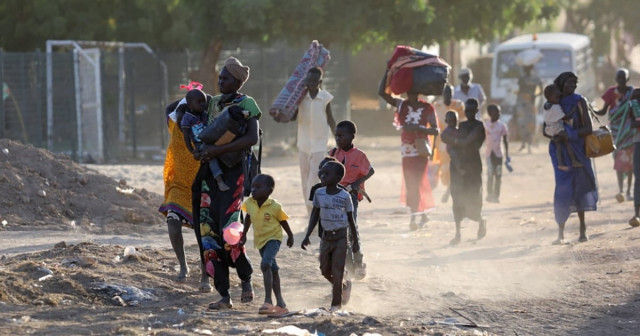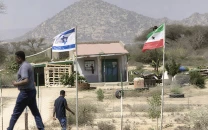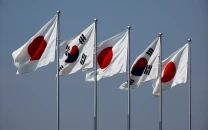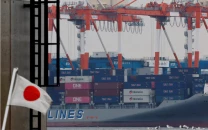Sudan faces imminent famine threat in 14 areas amid escalating conflict: global hunger monitor
Famine occurs if 20% population in an area suffers catastrophic food shortages with 30% children acutely malnourished

There is a realistic chance of famine in 14 areas across Sudan if the war that began in April last year escalates, a global monitor said on Thursday, in a sharply worsening hunger crisis that the World Food Programme called the world's largest.
The areas are located in the capital Khartoum, the regions of Darfur and Kordofan, and El Gezira state, places that have seen the heaviest fighting, an update from the Integrated Food Security Phase Classification (IPC) said.
The IPC said its analysis marked a "stark and rapid deterioration of the food security situation" in Sudan in December, and recorded the worst levels of hunger it had observed in the country.
The number of people experiencing a hunger crisis in the lean season period to September, when less harvested food is available, rose by 45% to 25.6 million, or more than half the population, the IPC said.
Some 8.5 million people - nearly a fifth of the population - face food shortages that could result in acute malnutrition and death or require emergency coping strategies. As previously reported by Reuters, some 755,000 are projected to be in "catastrophe", the most severe level of extreme hunger up from zero in December.
Also Read: UN scales up humanitarian aid to Sudan's Darfur, Khartoum
War between Sudan's army and the Rapid Support Forces (RSF) erupted more than 14 months ago in the capital, and quickly spread to other parts of the country. It has triggered ethnically-driven violence in the western region of Darfur, caused the world's biggest internal displacement crisis and split control of the country between the rival camps.
A hunger crisis, which the WFP said on Thursday was the worst in the world, has already pushed some Sudanese to eat leaves and soil. A Reuters report last week included analysis of satellite imagery that showed cemeteries expanding fast as starvation and disease spread.
MILITIA RISK
The IPC is a collaboration that includes UN agencies, national governments, and aid groups and produces internationally recognised assessments of food crises. Its most extreme warning is Phase 5, which has two levels, catastrophe and then famine, which can be declared if certain thresholds are passed across a specific area.
Famine can be declared if at least 20% of the population in an area suffers catastrophic food shortages, with at least 30% of children acutely malnourished and two people out of every 10,000 dying daily from starvation or malnutrition and disease.
Since the IPC warning system was created 20 years ago, famines have only been declared twice - in parts of Somalia in 2011 and parts of South Sudan in 2017. The IPC said famine could occur with reasonable probability under a worst-case scenario that includes the escalation of fighting across Sudan and the involvement of local militias.
Read More: Sudan spirals deeper into chaos: UN
Earlier this week, the RSF staged an incursion into Sennar state and took over another state capital. Heavy fighting has continued elsewhere. "Time is fast running out to prevent famine. For each person we have reached this year, another eight desperately need help," WFP Executive Director Cindy McCain said in a statement.
FOREIGN BACKERS 'COMPLICIT'
The 14 areas that the IPC said were at risk of famine include Tuti Island on the Nile and the working-class Mayo district of Khartoum, Madani, the trade hub capital of Gezira, and the besieged city of al-Fashir in North Darfur. It also includes displacement and refugee camps around Nyala, capital of South Darfur, and in West Darfur and South Kordofan. Most of the areas have been controlled or attacked by the RSF.
On Wednesday, UN experts accused both rival factions of using food as a weapon of war by blocking, looting, and exploiting humanitarian assistance. The warring factions have denied impeding aid.
"Foreign governments providing financial and military support to both parties in this conflict are complicit in starvation, crimes against humanity, and war crimes," the UN experts said in a statement. They also called on the United Nations and international donors to boost support for local humanitarian networks and volunteers "risking their health and lives and working across battle lines".



















COMMENTS
Comments are moderated and generally will be posted if they are on-topic and not abusive.
For more information, please see our Comments FAQ